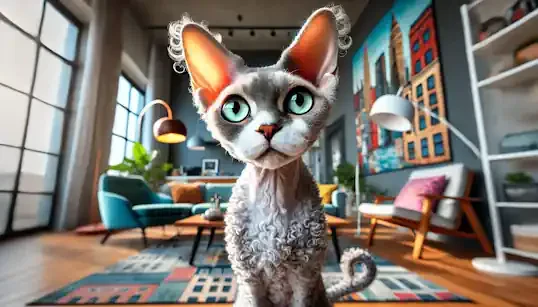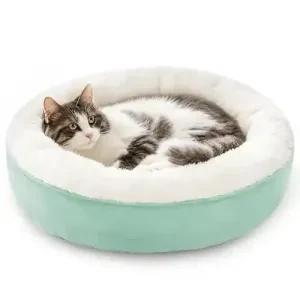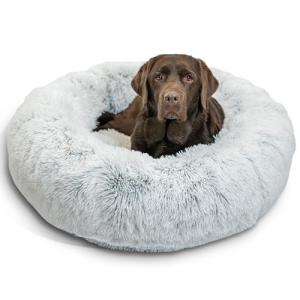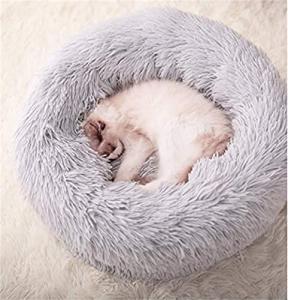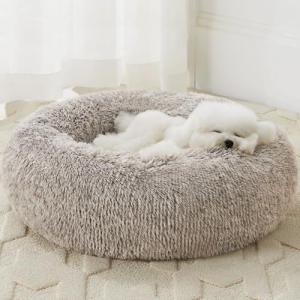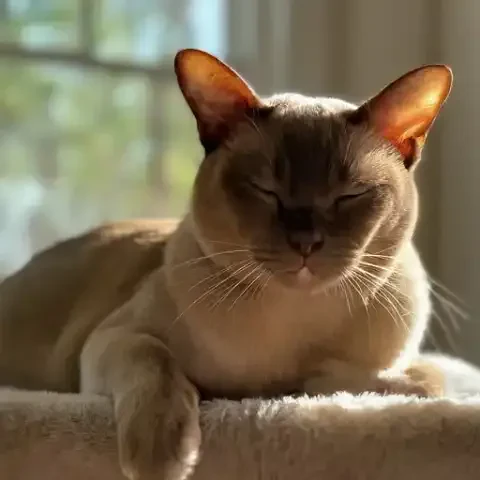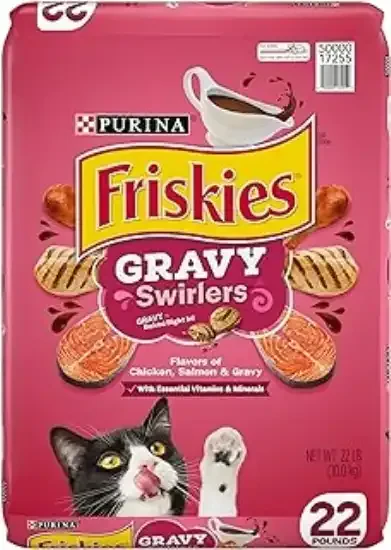Imagine a cat with pixie-like features, ears that seem far too large for their face, and a coat that ripples with waves, feeling more like crushed velvet than fur – all contained within a body that is perpetually in motion, brimming with playful energy and overflowing with affection. If this sounds like a creature from a fairytale, you’re not far off. You’ve just pictured the captivating Devon Rex cat, a breed that is truly unique in both appearance and personality. More than just their striking curly coat, Devon Rex cats are celebrated for their elfin charm, their devoted nature, and their ability to bring endless entertainment and joy into the lives of their fortunate owners. This guide is your comprehensive exploration into the world of the Devon Rex, designed to unveil the secrets of their allure, from their accidental beginnings to their distinctive traits, their endearing personalities, and the essential aspects of providing a happy and fulfilling life for one of these extraordinary felines. Whether you’re a seasoned cat enthusiast or simply captivated by the unusual, prepare to be charmed by the whimsical world of the Devon Rex.
The story of the Devon Rex cat is a delightful tale of serendipity, a testament to the unexpected wonders that nature can sometimes create. The breed’s origins can be traced back to a seemingly ordinary farm in Buckfastleigh, Devon, England, in the year 1960. It was here, amidst a litter of otherwise unremarkable kittens born to a straight-haired tortoiseshell cat, that a true original emerged. This single kitten, christened Kallibunker, was unlike his littermates. He possessed a coat of soft, rippling curls, setting him apart and marking the accidental genesis of a brand-new feline breed. Kallibunker’s appearance was not just a minor variation; it was a clear indication of a spontaneous genetic mutation, a natural anomaly that would forever change the landscape of the cat fancy. His unusual coat, combined with his large ears and elfin features, immediately captured the attention of his owner, Beryl Cox, who recognized that she had stumbled upon something truly special. This wasn’t a product of deliberate breeding or careful planning; it was a gift of chance, a happy accident that would give rise to one of the most distinctive and beloved cat breeds in the world. Kallibunker, unknowingly, became the foundational sire of the Devon Rex, the single point from which all subsequent Devon Rex cats would trace their lineage.
Initially, there was some understandable confusion surrounding Kallibunker and his unusual coat. Another curly-coated breed, the Cornish Rex, had emerged in nearby Cornwall just a decade prior. The initial assumption was that Kallibunker might be related to the Cornish Rex, perhaps representing a variation within the same breed. However, early breeders and geneticists recognized the importance of understanding the precise nature of Kallibunker’s curl. Through careful test breedings and genetic investigation, a crucial discovery was made: the Devon Rex curl was caused by a completely different recessive gene mutation than the one responsible for the Cornish Rex curl. This revelation was pivotal. It definitively established that the Devon Rex and Cornish Rex were not merely variations of the same breed, but rather two entirely distinct curly-coated breeds, each with its own unique genetic origin and set of physical characteristics. This genetic distinction is why, even though both breeds boast curly coats, they are considered separate and distinct within the cat fancy, each possessing its own breed standards and lineage.
Once the distinct nature of the Devon Rex was confirmed, breeders recognized the potential of this unique feline and embarked on dedicated breeding programs to preserve and propagate the breed’s distinctive traits. Early breeders worked carefully to expand the Devon Rex gene pool while maintaining the desired curly coat, elfin features, and engaging personality. Formal breed recognition soon followed, first in the United Kingdom and then internationally. The Governing Council of the Cat Fancy (GCCF) in the UK was among the first to officially recognize the Devon Rex, followed by major cat registries in North America, such as the Cat Fanciers' Association (CFA) and The International Cat Association (TICA). This official recognition marked a turning point for the Devon Rex, solidifying their place within the cat fancy and opening the doors for wider appreciation and popularity. As word of the Devon Rex spread, so too did their appeal. Cat lovers around the world were drawn to their unusual beauty, their hypoallergenic coat (often mistakenly believed to be entirely non-allergenic, but generally producing less dander than many breeds), and their endlessly entertaining and affectionate personalities. From their humble, accidental beginnings in a Devon barn, the Devon Rex has risen to become a cherished and admired breed, a testament to the magic of spontaneous genetic variation and the enduring allure of the truly unique.
The Devon Rex cat is instantly recognizable, a feline unlike any other, thanks to their truly distinctive and captivating physical characteristics. Their most celebrated feature, without a doubt, is their signature curly coat, often described as “rexed,” a term used to denote the wavy or curly nature of the fur. Unlike the dense, plush coats of many breeds, the Devon Rex coat is remarkably short, fine, and incredibly soft to the touch. Its texture is often compared to crushed velvet, suede, or even the downy softness of peach fuzz. The curl itself is not uniform; it ranges from gentle waves to tighter curls, creating a rippling effect across their body. What makes the Devon Rex coat truly unique is that the curl is present in all three types of cat hair: the guard hairs, the down hairs, and the awn hairs. This comprehensive curl contributes to the coat’s distinctive texture and appearance, making it feel different from the coats of other curly breeds. Interestingly, due to the structure of their coat, Devon Rex cats often have areas, particularly behind their large ears and on their muzzle, that appear sparsely furred or even “bare.” This is perfectly normal for the breed and not indicative of hair loss; it’s simply a consequence of the way their curly coat grows and lies. The coat length also varies slightly across their body, tending to be shorter on their chest and stomach and slightly longer on their flanks and back, further enhancing the rippled texture. While coat is the defining feature, the Devon Rex boasts a slender yet gracefully muscled physique. They are medium-sized cats, exhibiting a body that is both refined and agile, never bulky or clumsy. Their build is often described as “whippet-like,” characterized by an arched back, a deep chest, and slender, long legs. This body type speaks to their athletic nature and agility, contributing to their playful and energetic movements.
The Devon Rex head and face are perhaps as distinctive as their coat, often described as “elfin” or “pixie-like,” contributing significantly to their overall unique charm. Their ears are undeniably the focal point, remarkably large and set low on the sides of their head. They are broad at the base and taper to pointed tips, resembling the exaggerated ears of a fairytale elf. These oversized ears are not just visually striking; they are also highly mobile and expressive, constantly swiveling to capture sounds and reflecting their alert and curious nature. Their eyes are another prominent feature, large, oval-shaped, and set wide apart on their face. This wide-set placement, combined with their large size, lends them an open, expressive gaze that conveys intelligence and curiosity. Eye color in Devon Rex cats is varied and all colors are permitted within the breed standard, often correlating with their coat color. However, intensity and clarity of eye color are generally preferred, enhancing their captivating gaze. Completing their elfin facial features is their short, slightly upturned muzzle, often described as having a “pinched” appearance, and their prominent cheekbones. These features, combined with their large ears and wide eyes, contribute to the overall pixie-like or impish expression that is so characteristic of the breed. Their legs are long and slender, perfectly proportionate to their body length, further emphasizing their elegant stance and contributing to their remarkable leaping abilities. Their paws are small and oval-shaped, appearing delicate yet surprisingly agile, allowing for nimble movements and graceful landings. Lastly, their tail is long, thin, and tapering, often likened to a whip in its slender form and flexibility. Like the rest of their coat, their tail is covered in the signature rexed fur, adding to the overall curly texture and contributing to their expressive body language. In essence, the Devon Rex’s physical appearance is a captivating tapestry of unusual and striking features, from their signature curly coat to their elfin face and graceful physique, solidifying their reputation as one of the most visually unique and charming breeds in the feline world.
Living with a Devon Rex cat is akin to sharing your home with a perpetually kittenish, endlessly entertaining, and profoundly affectionate pixie. They are renowned for their exceptionally loving and people-oriented personalities, earning them the affectionate moniker of “Velcro cats” for their intense desire to be close to their human companions. Devon Rex cats are not content to be passive observers; they crave human interaction and thrive on being the center of attention. They are demonstrative in their affection, constantly seeking physical closeness, following their owners from room to room, and readily offering purrs, head-butts, and kneading paws as expressions of their love. Lap time is not just tolerated; it is actively sought out, and a Devon Rex will happily curl up in your lap for hours, soaking up affection and offering unwavering companionship. Their playful nature is another defining trait, a kittenish zest for life that they retain well into adulthood. Devon Rex cats are bundles of energy, always ready for a game, a chase, or an interactive play session. They are not content to simply nap the day away; they need activity and stimulation to thrive. Interactive play is not just a suggestion; it is a necessity for their well-being. They relish games that involve chasing toys, batting at dangling objects, fetching (many Devons readily learn to fetch small toys), and engaging in puzzle toys that challenge their intelligent minds. Providing them with ample toys, climbing structures, and opportunities for play is crucial for keeping them happy, healthy, and preventing boredom-related mischief.
Intelligence is another hallmark of the Devon Rex personality. They are quick learners, easily trainable, and often enjoy engaging in activities that challenge their intellect. Many Devon Rex cats can be taught tricks, respond reliably to their names, and even learn to walk on a leash, providing enriching opportunities for both mental stimulation and bonding. Their eagerness to please their owners makes training a relatively straightforward and enjoyable process. Clicker training, in particular, is often highly effective with Devons, as they respond well to positive reinforcement and the reward of attention and praise. Their social nature is as prominent as their affection and playfulness. Devon Rex cats are generally excellent with children, displaying remarkable patience and tolerance when treated respectfully. They can be wonderful family pets, thriving in households where they receive ample attention and interaction from multiple family members. Similarly, they typically get along well with other cats and even cat-friendly dogs. Their adaptable and social personalities make them well-suited to multi-pet households, where they often integrate seamlessly into the existing animal family. However, it is worth acknowledging their “mischievous pixie” side. Their boundless curiosity and playful energy, combined with their intelligence, can sometimes lead to them getting into things if they are bored or under-stimulated. They are natural explorers, eager to investigate every nook and cranny, and their playful antics can sometimes veer into silliness or even minor mischief if not properly channeled. Providing them with ample enrichment, playtime, and attention is key to preventing boredom and ensuring their mischievous tendencies are directed towards fun and games rather than unwanted behaviours. In summary, the Devon Rex personality is a delightful and captivating blend of intense affection, boundless playfulness, keen intelligence, and engaging sociability. They are not just beautiful cats to look at; they are rewarding, interactive companions who bring endless joy, entertainment, and unwavering love into the lives of those fortunate enough to share their homes with them.
Caring for a Devon Rex cat is a relatively straightforward and rewarding experience, particularly when it comes to grooming, which is surprisingly low-maintenance despite their unique coat. While their curly coat is certainly striking, Devon Rex cats require minimal grooming compared to many other breeds. Brushing is rarely necessary; in fact, over-brushing can even damage their delicate curls. Often, simply petting them is sufficient to remove any loose hair and keep their coat looking its best. Occasional gentle wiping down with a damp cloth can be beneficial to remove surface dust or loose hair, but elaborate grooming routines are simply not needed for this breed. Their minimal shedding is another bonus for owners who prefer a cleaner home environment. Beyond coat care, routine nail trimming, ear cleaning (their large ears may require more frequent checks for wax buildup), and dental care are essential parts of a Devon Rex’s hygiene regimen, just as they are for any cat breed.
Proper nutrition is fundamental to the health and well-being of your Devon Rex. Feed them a high-quality cat food that is appropriate for their age, activity level, and indoor lifestyle. Look for cat foods that list meat as the primary ingredient and are formulated to be complete and balanced for cats. Devon Rex cats are known for having good appetites and can sometimes be prone to overeating if given unlimited access to food, especially if they are less active. Monitor their food intake and adjust portions as needed to maintain a healthy weight and prevent obesity. Fresh, clean water should always be readily available to ensure proper hydration.
Providing abundant opportunities for exercise and playtime is crucial for keeping your Devon Rex happy and healthy. Their high energy levels and playful nature demand consistent outlets for physical and mental stimulation. Daily interactive play sessions are vital. Dedicate ample time each day, ideally multiple sessions, to engaging in active play with your Devon Rex. Use toys that encourage chasing, pouncing, leaping, and climbing to satisfy their natural instincts and burn off their considerable energy. Provide them with climbing structures such as cat trees, shelves, and window perches to allow them to explore vertical spaces and satisfy their climbing inclinations. Puzzle toys and food puzzles are also highly recommended for providing mental enrichment and engaging their intelligent minds, preventing boredom and channeling their energy constructively.
One specific consideration for Devon Rex owners is their sensitivity to cold. Their thinner coat and lack of a substantial undercoat, combined with their slender body type, make them more susceptible to feeling cold compared to some breeds with denser fur and more body fat. Take precautions to keep them warm, especially in colder climates or during winter months. Provide them with warm and cozy spots to snuggle, such as heated beds, soft blankets, and draft-free areas. Some Devon Rex cats may even appreciate wearing sweaters in particularly cold conditions.
While generally a healthy breed, Devon Rex cats can be predisposed to certain health conditions, although it’s important to emphasize that they are generally robust cats. Hypertrophic Cardiomyopathy (HCM), a heart condition, has been noted in the breed, as it has in many cat breeds. Hip dysplasia and patellar luxation (dislocating kneecap) are skeletal issues that, while less common than in some larger breeds, can occur in Devon Rex cats. Hereditary Myopathy, also known as Devon Rex Myopathy, is a breed-specific muscle weakness condition. However, reputable breeders now test for this condition to minimize its occurrence. When acquiring a Devon Rex, especially a kitten, it is essential to choose a reputable breeder who prioritizes health testing and can provide you with health information about the kitten’s lineage, particularly regarding Myopathy. Regardless of breed, regular veterinary checkups are crucial for preventative care and early detection of any health issues. Annual vet visits, vaccinations, parasite prevention, and dental checkups are essential for maintaining your Devon Rex’s long-term health and well-being. For their safety and comfort, an indoor lifestyle is strongly recommended for Devon Rex cats. Their affectionate nature, thinner coat, and trusting personalities make them less well-suited to navigating the dangers of the outdoors. Keeping them indoors provides a safe and controlled environment where you can better protect them from harm and ensure they thrive. In summary, caring for a Devon Rex is about understanding their specific needs for play, warmth, and attention, while appreciating their relatively low-maintenance grooming requirements and proactively managing their health, allowing these unique and charming cats to flourish as beloved companions.
